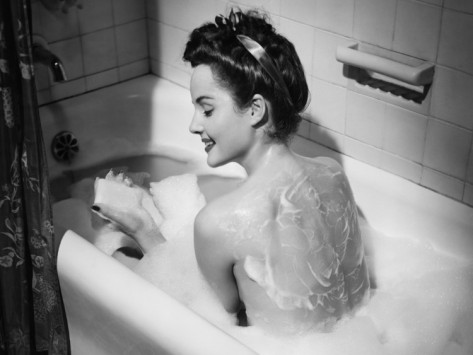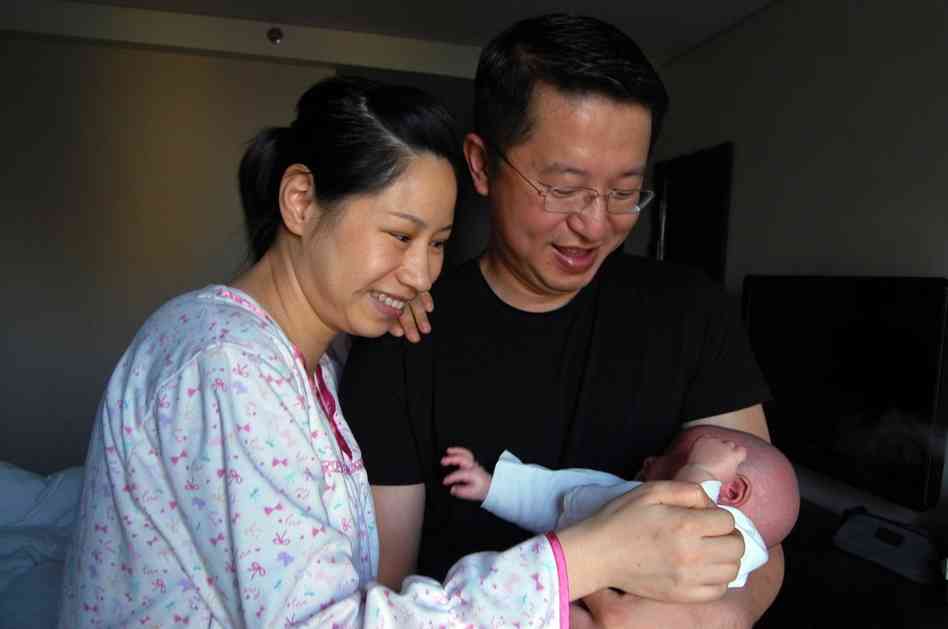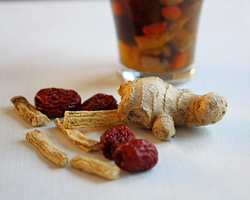[FACT OR FAKE #28] Washing Your Hair After Giving Birth Is Not Good For Health
Women should not wash their hair for 6 weeks after they give birth, that's what they say. They also say that new mothers should always be kept warm. But why?
People say showering and washing will make new mothers catch a cold. Is this fact or fake? What are the origins and basis of this practice?
One of the traditions of postpartum confinement (zuo yuezi - 坐月子) is no washing after childbirth. This is to prevent the body from catching cold after birth.
Washing your hair may induce headaches, since there are so many pores on your head.
It’s believed postpartum that the mother’s skin is “loose” and water can enter the body through the pores in the skin. Water is harmful because with exposure, later in life you may develop swelling, arthritis and rheumatism or presently, could catch a cold which can be passed to the baby.
You're not supposed to take a bath until 6 weeks post partum due to risk of infection. Just be careful in the shower right after having the baby as the hot water can make you dizzy after losing all that blood.
FACT: There is NO scientific proof that washing your hair is a bad idea. Personal hygiene is highly recommended. Mums who choose to keep dry will be fine either way.
You can wash your hair 2 seconds after giving birth if you wanted to. Washing hair will not effect anything in any kind of way.
Mrs Wong emphasised that we should pay more attention to basic personal hygiene — especially if mothers were to breastfeed — and also to prevent infection of any stitches we would have had due to delivery.
Dr. Li's view is that as long as the new mother is healed well, without medical complications, such as a temperature or anaemia, she should be allowed the freedom to function normally 3-5 days after birth. Extra maintenance is unnecessary.
“The benefits of many of these confinement practices are difficult to prove scientifically,” Dr. Lai Fon-Min says. “However, it is unlikely that they will do any harm.”
Personal hygiene is recommended. However, mums who choose to keep dry will be fine either way.
Image via salon.comSome mothers avoid taking baths in the bath tub for risk of infection through germs found in water. But as long as mothers don't force water up the birth canal, baths are harmless too.
You're not supposed to take a bath until 6 weeks post partum due to risk of infection. -CircleofMoms.com
Image via allpostersimages.comMy OB told me baths are safe really anytime. They use to think that the water in the tub (WHICH HAS GERMS IN IT) would give u an infection and even when your preg. not to take a bath, but now they know that water doesn't get up inside the vaginal canal unless it is forced there. So, taking a bath just to soak should be fine. Take a shower first to clean urself and then soak and enjoy. Just don't force any water into the birth canal or if you have a jacuzzi bath leave the jets off. Hope this helps. Use a hot water bottle on your back as often as you can if your still to nervous to bathe.
cafemom.comIf you've had stitches after tearing or an episiotomy (cut), bathe the area often in clean, warm water to help it heal. Have a bath or shower with plain warm water. After bathing, dry yourself carefully.
It's completely fine to take a shower right after you give birth! The only thing they're NOT ok with is taking a bath. You're not supposed to take a bath until 6 weeks post partum due to risk of infection. Just be careful in the shower right after having the baby as the hot water can make you dizzy after losing all that blood.
According to Chinese tradition, new mothers are not even allowed to LEAVE THEIR ROOMS for 30 days!
In Chinese, this is literally called "sitting the month," as new mothers are pretty much expected to just sit around in pajamas for a month to recover from childbirth.
npr.orgBed rest is the safest way to ensure that the mother is not leaving the home and catching “wind” and cold, and it also keeps the mother off her feet so that her uterus can retract.
Hot massages are believed to get new mums back into shape faster
Personal hygiene is recommended. However, mums who choose to keep dry will be fine either way.
Image via druckercreative.comBoth mother and baby receive massages or maalish during confinement. Maalish is believed to help the new mum relax and get back into shape.
babycenter.com.myBertungku has long been considered an important aspect of the Malay mum's confinement. This is to dissolve residual blood clots in the uterus (womb).
babycenter.com.myTradition dictates that pregnancy and birth affect a woman's entire well-being. Bengkung (traditional wrap) can flatten the stomach, shrink the uterus and tighten the vagina.
babycenter.com.myDo mums who do not follow postnatal care like this age quicker?
“East and west are extremely different! Western postnatal women do not focus on maintenance. According to the Traditional Chinese doctor, they (i.e. western women) age much quicker.”
It is true that eating and avoiding certain kinds of food will help mothers recover faster and build up their immune system
After giving birth, it’s thought, and in most cases is true, that mothers lose a lot of blood, iron, and protein. Eating specialty foods will help the mother recover faster and build up her immune system.
According to believers, the monthlong regimen helps women recover from childbirth, produce more breast milk and recalibrate their bodies.
Not allowed to eat raw fruit or vegetables, or drink coffee, cold drinks or even cold water, which can only be drunk tepid or hot. These rules are aimed at restoring balance to the new mother's body after childbirth.
npr.orgCaffeine and alcohol can get into your breastmilk, so be sure not to take too much.
babycenter.com.my




